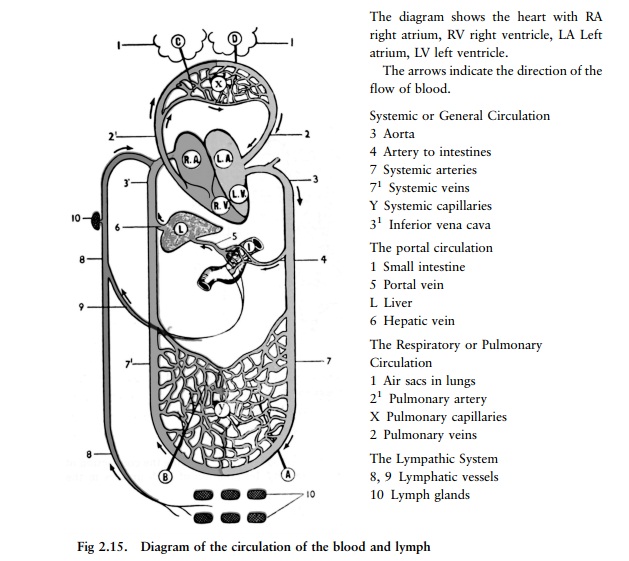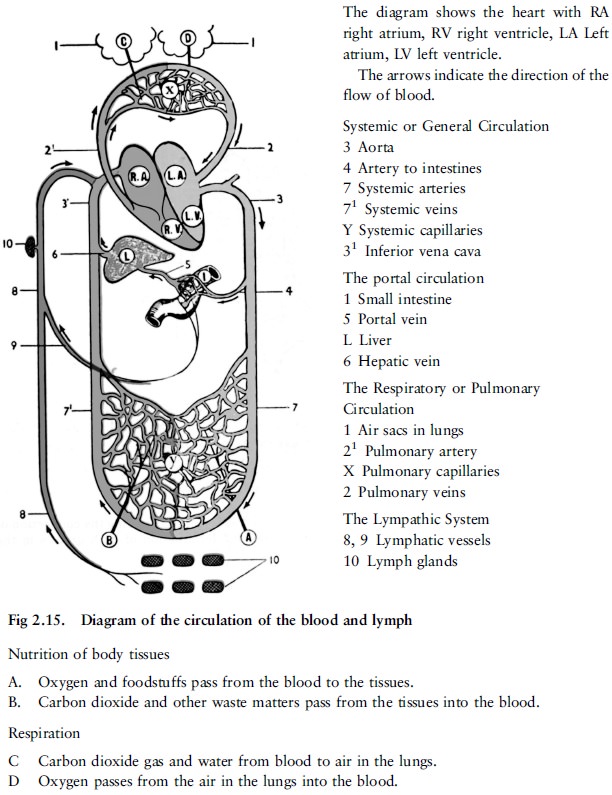Chapter: Forensic Medicine: Basic anatomy and physiology
Circulation of the blood

Circulation of the blood
Introduction
The blood is the fluid bringing nourishment to
all the living structures or tissues of the body, and carrying away the waste
matter formed there.
Blood is composed of numerous and extremely
small separate particles of living matter called blood cells, suspended in a
fluid called plasma. The majority of the blood cells are called red cells
because of their reddish colour, and they carry the oxygen absorbed from the
air into the lungs through breathing to the tissues. The other blood cells are
called white cells because they contain no colouring. They are not oxygen
carriers. Their main purpose is to serve as the scavengers of the blood and as
a first line of defence against germs of infection which may enter the body.
Nutrients are dissolved in the plasma and carried to the tissues. The blood
also contains platelets that help with coagulation.

In order to nourish the tissues, the blood must
constantly circulate through all parts of the body, and the organs which
maintain the circulation are the heart and the blood vessels. These are
therefore called the organs of circulation (fig 2.15).
The heart is a hollow, self-acting muscular pump
supplying the activating power to the circulation. It is fitted with valves, so
that it drives the flow of blood always in one direction, on through the blood
vessels to the tissues and back again from the tissues to the heart. The blood
vessels form a continuous closed system of tubes in which the blood is carried.
They are divided into three classes:
arteries - blood vessels carrying blood from
the heart to the tissues
capillaries - very fine blood vessels through which the blood circulates in the tissues
veins - blood vessels carrying blood from the tissues
back to the heart
Related Topics